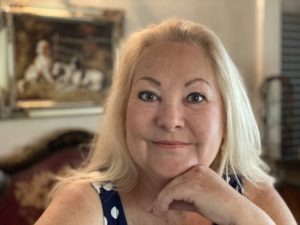Live from the 2017 Spring Memory Care Forum
A little rain and a midafternoon hotel fire alarm evacuation couldn’t dampen the spirits on day 1 of the Spring Memory Care Forum in Philadelphia, where today’s slate of 12 presenters shared their expertise with nearly 200 attendees.
The prevailing theme of the day was the application of person-centered care principles to unearth and embrace the person behind the dementia, especially the documentation of residents’ life stories. Knowing deep details of a resident’s family history, career, passions, talents and tragedies can help caregivers learn how to avoid triggers of negative behaviors and how to personalize interventions to each resident.
Morning keynoters Kathy Johanns and Sara Rodriguez, RN, both of the Texas State Veterans Homes, discussed their model for training staff on the unique needs of seniors with dementia who also have experienced military-related post-traumatic stress or other forms of trauma.
In the morning executive breakout session, Samantha Hollister, President of CERTUS Senior Living, had attendees thinking hard about what it means to be a transformational leader. In the clinical breakout session, Daniel Haimowitz, MD, provided strategies for dementia care medication management that strive for a balance between effectiveness and practicality. Nicole Absar, MD, medical director at Copper Ridge Memory Clinic, educated the audience on the many different dementia symptoms and how they associate with specific diseases, including Alzheimer’s disease, Lewy body dementia, frontotemporal dementia and others.
Amy Carpenter and Melissa Pritchard from SFCS, Inc. showed attendees how interior design and the use of spaces can help or hinder residents who have cognitive impairment, while Kelly McCarthy, corporate director of memory care and resident engagement at LCB Senior Living, discussed staff management strategies to help identify positive and negative triggers among residents.
Interspersed throughout the day, were several hands-on, experiential sessions that tapped people’s creative and interactive juices. In one session, attendees picked up crayons and used their memories to create a group art project with the assistance of Melissa Easton-Sandquist and Molly Sahner from the Opening Minds Through Art organization. In another, Joshua Freitas, vice president of program development at CERTUS, used simple props to mimic the visual and auditory symptoms of dementia-related diseases and allow attendees to experience the communication and functional difficulties residents can have. At the conclusion of the day, attendees got their dance moves on as Natasha Goldstein-Levitas led the group in ways to use dance therapy to link movement and memory.
The concept of “behavioral huddles” also got a lot of attention, as several providers shared how they implement the technique of short, timely meetings to gather information from a range of staff members on what happened before, during and after a resident’s negative behavior.
Stay tuned for coverage of another full day of keynotes and breakout tracks tomorrow!

Pamela Tabar was editor-in-chief of I Advance Senior Care from 2013-2018. She has worked as a writer and editor for healthcare business media since 1998, including as News Editor of Healthcare Informatics. She has a master’s degree in journalism from Kent State University and a master’s degree in English from the University of York, England.
Related Articles
Topics: Alzheimer's/Dementia , Articles











